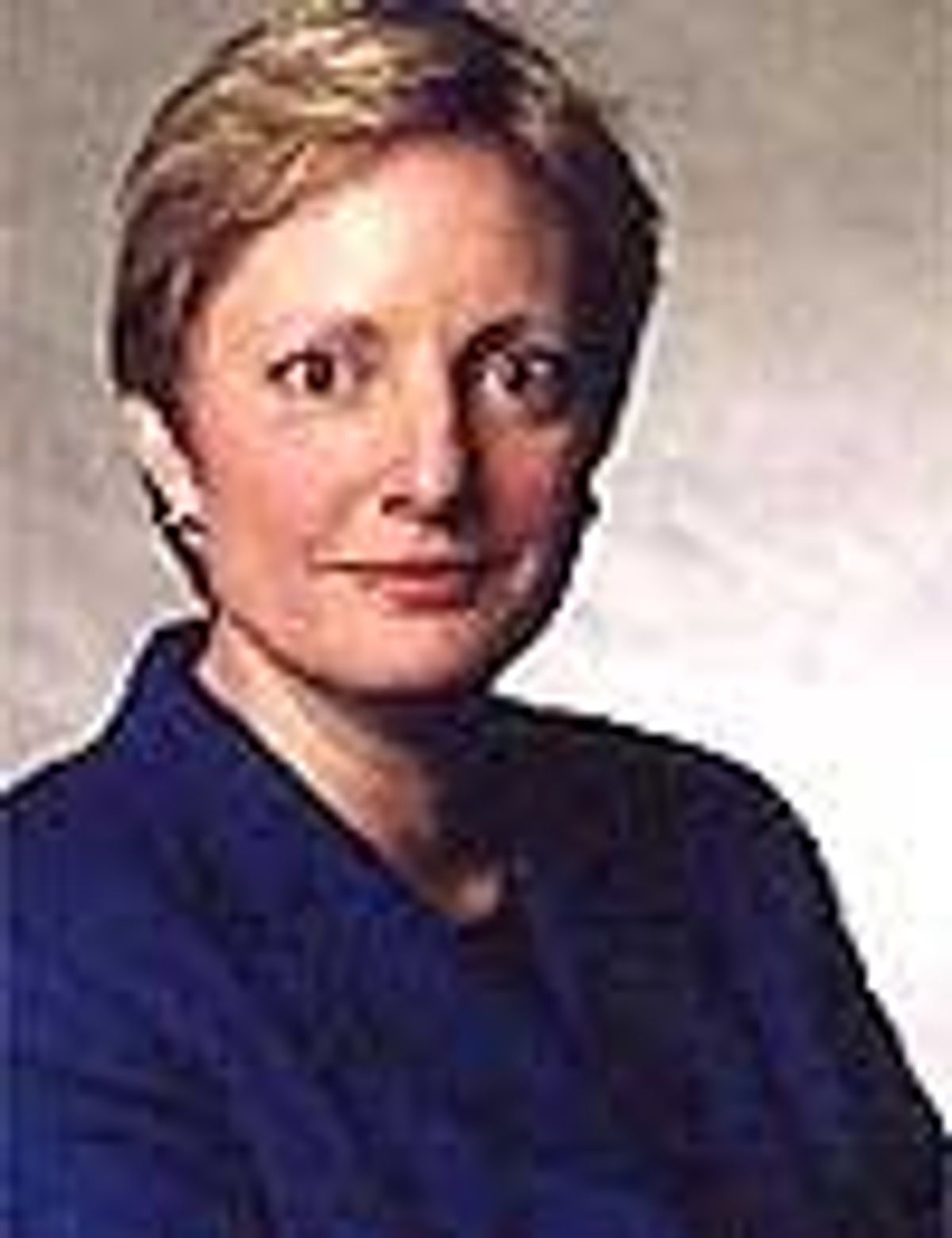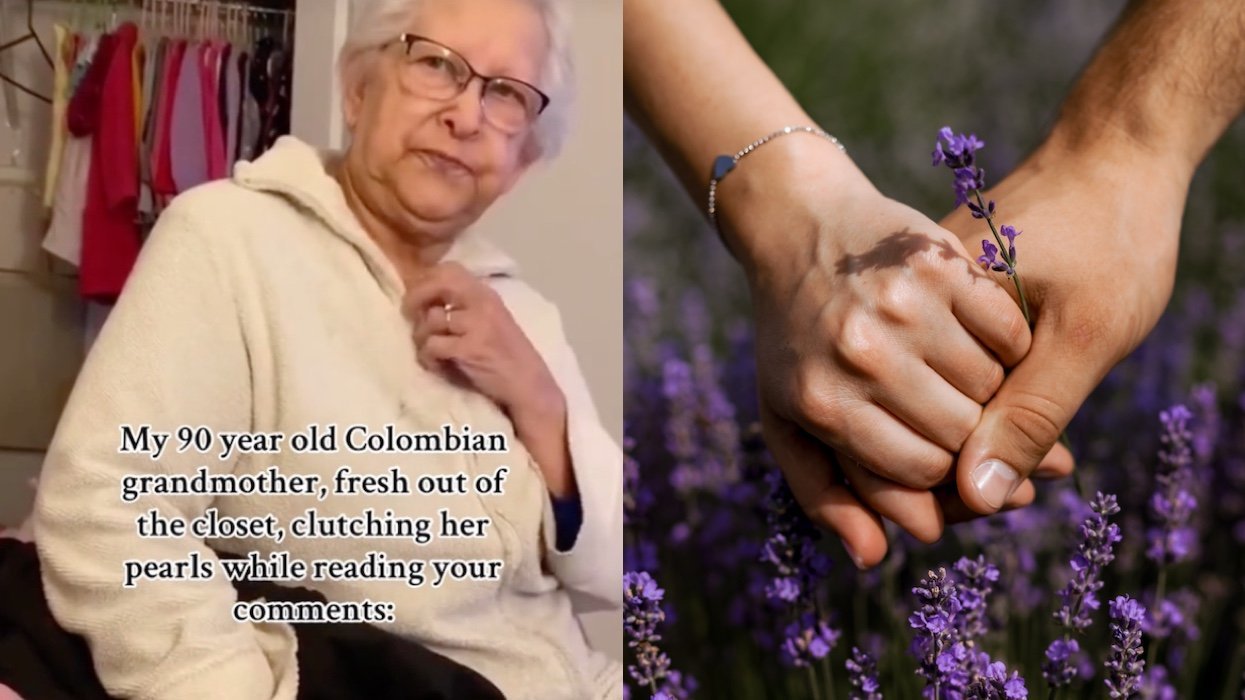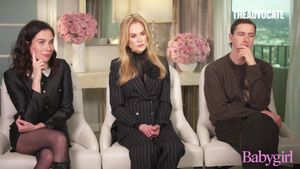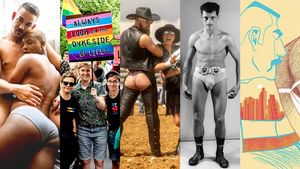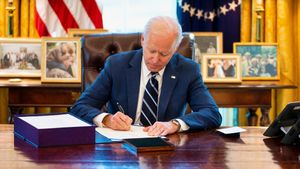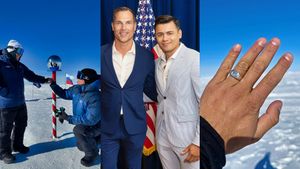For the second
episode of her new talk show, Elizabeth Birch welcomed a
guest she knew much of her audience would have preferred
shouting at instead of listening to.
That was precisely the point.
Birch, a veteran gay and lesbian rights
activist, had frequently been matched against Pat
Buchanan on the kind of cable news debates that favor
the quick and the loud. She wanted conversation that
promoted understanding. Her hour-long talk with
Buchanan can be seen starting Friday on Here, a
premium network aimed at gays and lesbians that's
available in nearly half of the nation's homes with
television. Birch & Company debuted earlier this
month with a Rosie O'Donnell interview.
"I have a theory that the gay community is
craving more than mudslinging back and forth for one
minute--verbal assaults and then you go to a
commercial, which is what it's really been for 10 years, in
my experience," she said. "You never get a chance to
really go down deep." Long-ago talk show hosts Dick
Cavett and David Frost are her models.
The personable Birch is a true Washington
insider, a lawyer who spent 10 years running the gay
rights group Human Rights Campaign before quitting in
2004 to help raise, with her partner, 6-year-old twins. Her
contacts enabled Birch to secure a guest list that
would be the envy of many shows on larger networks: Al
Gore, Sen. Edward Kennedy, Democratic National
Committee chairman Howard Dean, Will &
Grace creator Max Mutchnick, fellow TV host Chris
Matthews, and conservative commentators Tucker Carlson
and Laura Ingraham.
Buchanan, a Catholic and former Republican
presidential candidate who believes homosexual
behavior is wrong, will probably never see eye-to-eye
with Birch. But he considers her a friend. "She's very
well-liked," he said. "She has a lot of friends, and she
represents her point of view with dignity."
The idea behind Birch & Company is to
give viewers a picture of the guests' personalities,
filtered through issues that have been important to
gays and lesbians over the years. But Birch didn't
want just gay guests, and she doesn't want to speak
exclusively to a gay audience.
What better challenge to tackle than Buchanan?
"I want to be able to understand him," she said. "I
want to go in there not with an ax but with a scalpel
and try to figure out what motivates him, where do his
values come from, and try to get people to open up in a way
they don't have the opportunity to open up." Buchanan,
for his part, thought it was "was an opportunity to
get our message out and de-demonize ourselves."
Birch asked Buchanan about his family and how
his Catholic and conservative beliefs were formed.
Buchanan talked about the Reagan administration's view
of AIDS with an insider's perspective and about how
his polarizing speech at the 1992 Republican National
Convention came about. They went back two decades to
when Buchanan urged the closing of gay bathhouses and
wrote a newspaper column saying gays and lesbians
"have declared war on nature, and nature is exacting an
awful retribution."
From Buchanan's perspective, the bathhouses were
dens of iniquity where disease was spread. From
Birch's, they were an important gathering place for
gays. "It's like saying, 'We want to get to all the
Irish--shut down St. Patty's Day,"' Birch said.
"Well, if there's poison in the beer, you shut
down St. Patty's Day," Buchanan shot back.
In another exchange, Birch asked Buchanan
whether he knew many gay people. He said he knew many,
including some when he worked in the Nixon White
House, whose orientation he didn't learn until much later.
"There's many, many, many more, it seems to me," he said.
"They're all over the place!"
Replied Birch: "We came out."
Their discussion was cordial, if occasionally
uncomfortable. No minds were changed, although Birch
said she sees a "softer heart" than she did early
in the AIDS crisis. "On an intellectual level, it
stayed up on that level," Buchanan said later. "It didn't
get down to anything grisly, so I was delighted."
Birch said she was "tremendously grateful" that
Buchanan agreed to the interview.
"He not only came and did the show, but he was
gracious, cooperative, he gave us all the time that we
needed, and he could not have been more of a
gentleman," she said.
At the end of the interview Birch attached a
postscript. She explained the difference between
Catholic conservatives and evangelical Christians and
said of Buchanan: "He is a man who believes that if you turn
everything over to the people, the people will always make
the right decisions. We know from American history
that is not true."
The ending was the show's only sour note,
sounding like an attempt to get in the last word or
patronize viewers by explaining what they had already
seen. Birch later said she was speaking to Here's younger
audience. She didn't want to show up Buchanan. "I was
trying to do a little bit of teaching at the end," she
said. "I'm not sure if it will stay. These first few
episodes are experimental." (David Bauder, AP)
